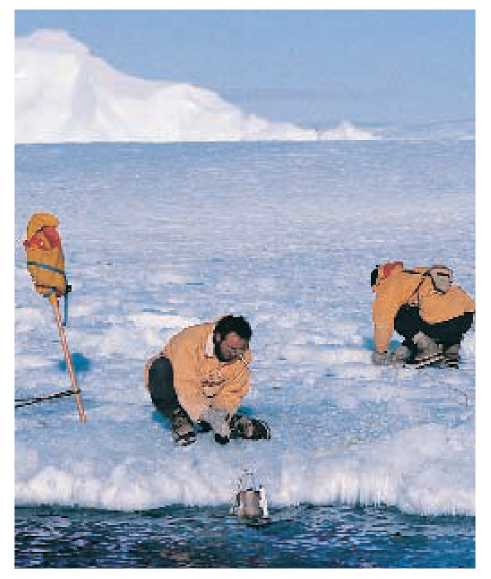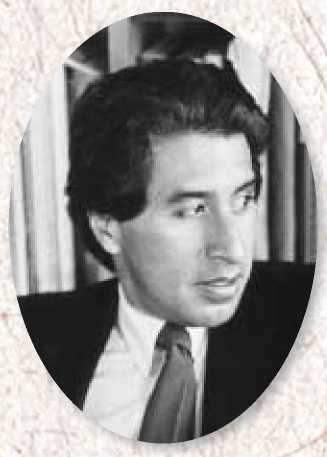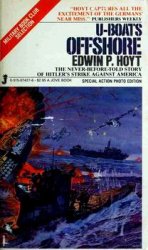The Independence party, now known as the Reform party, focuses on several key issues, including reforming congressional campaign practices and passing a balanced budget amendment. Perot contended that his party was for Americans “who don't feel represented by either the Republicans or the Democrats.”
Of whether Americans would accept infringements of their civil liberties in order to suppress terrorist violence. After the Oklahoma City bombing, concrete barriers closed off Pennsylvania Avenue in front of the White House. These barriers served as a reminder of terrorism's cost.
Threats to the environment mounted as the twentieth century ended. The battle continued between those who wanted to preserve natural wilderness and those who favored greater development of natural resources.
President Clinton wanted to protect the environment, but he also promised to "grow the economy." The President tried to placate both developers and environmentalists through a series of compromises. One compromise between the logging industry and environmentalists balanced the needs of loggers in the Pacific Northwest with protection of the spotted owl. President Clinton also took steps to stop further loss of America's wetlands, areas such as tidal flats and swamps. Moreover, in 1996 the President protected Utah's southern red-rock cliffs and canyons from mining by declaring them a national monument.
One of the more controversial environmental issues concerned acid rain, precipitation contaminated by acidic gases given off when environmental pollutants such as oil, gas, or coal burn. Environmentalists, calling for stricter regulations, contended that acid rain kills

Visualizing © istory
This landfill in Massachusetts is a repository for trash from all over the state. The largest landfill in the world is Fresh Kills in New York. It receives 17,000 tons of garbage each day. The landfill covers 3,000 acres and takes up 2.4 billion cubic feet of space. Con-tents of the landfill include paper (50%), miscellaneous (20%), organic (13%), metal (6%), glass (1%), and plastic (less than 1%). How is Fresh Kills affected by the Clinton administration’s environmental policy?
Fish, damages crops, and strips forests. Developers warned that more regulations meant higher costs for companies that burn fossil fuels, forcing them either to find other energy sources or to install pollution-control devices. Accepting either option, they argued, would increase production costs, sending fuel prices spiraling upward and leading to the loss of jobs.
In 1995 the earth's surface reached a record high. Scientists think this was caused by global warming—warming created as gases released by burning fuels, such as coal and natural gas, trap the sun's heat. Some predicted that this "greenhouse effect" of heating up the earth's atmosphere could lead to problems such as erratic weather patterns and the spread of tropical diseases.
A United Nations-sponsored meeting on global warming in Kyoto, Japan, produced the Global Climate Change Treaty, which called on nations to take steps to reduce the emission of "greenhouse" gases. The Clinton administration signed the treaty, but opponents in the Senate blocked its ratification, or official approval. They argued that the treaty would require the United States to reduce its use of fuel drastically and would limit the growth of the U. S. economy.
The 1990s saw mounting risks to people's health. Diseases such as AIDS (acquired immune deficiency syndrome) killed thousands in the United States and worldwide. Continued concern about drug addiction caused many people to demand more government efforts to halt the problem.
During the 1980s and 1990s, AIDS spread rapidly throughout the world. By the mid-1990s, AIDS became the third-leading cause of death among Americans aged 25 to 44. Since 1981, over 600,000 AIDS cases were diagnosed in the United States, and estimates placed the number of Americans infected with HIV (human immunodeficiency virus, which often leads to AIDS) at over 1 million.
Responding to these alarming statistics, the federal government launched programs to educate Americans about the dangers of AIDS. President Clinton appointed a federal AIDS policy coordinator, and Congress significantly increased funding for AIDS research. In 1996 new drugs caused the first drop in the number of Americans diagnosed with AIDS. Many Americans remain infected with the disease, however.
790
UNIT 7 Redefining America: 1954-Present




Drug abuse also spread toward the end of the twentieth century. During the 1990s a significant increase in marijuana use occurred among high school students. The head of Columbia University's Center on Addiction and Substance Abuse, said:
. [T]he most frightening thing is that smoking marijuana is clearly a stepping stone to more serious problems. Children who smoke pot are 85 times more likely to use cocaine. JJ
Indeed, the use of cocaine and crack cocaine, a more potent form of the drug that is smokable, rose among men, women, and young people. Moreover, some of the women who used cocaine during pregnancy had babies who were born addicted. These children, sometimes called cocaine babies, often suffered serious and lasting health problems.
Economic and political problems in places such as Mexico, the former Soviet Union, and Haiti brought a new tide of immigration to the United States. Between 1970 and 1998 the number of immigrants living in the United States nearly tripled from 9.6 million to 26.3 million. Some newcomers were illegal aliens, people who enter a country without legal permission. Total legal immigration reached nearly 1 million a year during the late 1980s, yet declined by nearly 200,000 in the 1990s.
Many Americans blamed increased immigration for lost jobs and higher taxes. Immigration took on especially emotional tones in states with large concentrations of illegal immigrants, such as Florida, Texas, and California. For example, California's governor Pete Wilson blamed much of his sfafe's economic problems on the costs of
Providing state services for illegal immigrants. Wilson argued, "We can no longer allow compassion to overrule reason."
In California, where illegal immigrants crossed the border from Mexico, voters in 1994 approved Proposition 187, which banned illegal aliens from enrolling in public schools and using nonemergency medical care and other social services. In 1996 California Proposition 227 abolished bilingual education in the public schools. These propositions stirred protests among legal immigrants, who reacted strongly to what they considered ethnic prejudice.
The Treatment of Legal Immigrants
Congress also limited the rights of legal immigrants by limiting their access to welfare benefits. Although immigrants applied for welfare benefits less often than American citizens, the number of legal immigrants in the welfare system kept rising. This growth in population increased costs for the government.
As part of its welfare reform bill in 1996, Congress barred legal immigrants who were not yet citizens from receiving many benefits, including food stamps and Social Security. Family members who sponsored immigrants were expected to bear more of the financial burden. President Clinton called these benefit cuts unjustified and pledged to restore them.
Tied directly to the debate on immigration was the question of diversity. Some Americans believed that the different people who make up the United States should retain their individual cultural heritages. They saw the United States as a multicultural society in which everyone should respect
Student Web Activity
Visit the American History: The Modern Era Since 1865 Web site at me. qlencoe. com and ciick on Chapter26— iStudent Web Activities lor an activity on immigration.

Each other's uniqueness. As Mayor Sharpe James of Newark, New Jersey, said, "Our diversity is our strength." Others believed, as many had in years past, that the United States should be a melting-pot society in which immigrants from around the world blend into one unique people.
Among the groups that sought equal rights during the 1990s were Americans with disabilities. In 1990 Congress passed the Americans with Disabilities Act. This law prohibited discrimination against the more than 40 million Americans who had physical, hearing, or visual impairments. Television news correspondent John Hockenberry, who himself used a wheelchair, commented: "Our struggle for inclusion in this society is a test of whether American society truly wants diversity and freedom for all."
¦ The Information Superhighway
As the United States entered the twenty-first century, a creative new form of communication became available via computer networks, forming an "information superhighway." This superhighway carried vast amounts of digitized information across fiber-optic telecommunications circuits at rapid speed.
The cold war gave rise to the original network, the Advanced Research Projects Agency Network (ARPANET), in 1969. ARPANET allowed the Department of Defense to communicate with contractors and universities working on defense projects.
By the 1990s millions of people gained access to an international computer network, the Internet. The Internet offered easy access to information on a global scale, and it grew rapidly toward the end of the century. Users could browse library catalogs, read magazines, listen to music, invest in stocks, buy consumer goods, and chat electronically with others who shared similar interests. The World Wide Web provided a powerful search tool that enabled users to retrieve a limitless variety of information—whether text, graphic, audio, or visual material— from the Internet.
The Internet offered unprecedented freedom of expression. Anyone with a modem could post information. This raised questions about the Internet's tendency to spread rumors and misinformation along with its more reliable services. Handled with responsibility, however, the Internet seemed poised to shape the future as the most universal and democratic means of global communication yet devised.
Welfare Reform Bill
Component
Component
1. Define ratification.
2. Describe how the United States tried in the early 1990s to stop illegal immigration.
3. Evaluating Tactics Do you think the government's efforts in the war on drugs should be focused on stopping the supply of drugs from other countries or on reducing demand?
4. Summarizing Re-create the diagram shown here to describe the components of the welfare reform bill.
5. Government Design a poster that illustrates one of the issues mentioned in this section. Make the focus of the poster why young Americans should be concerned.
THE ARTS fl(jg[|(jnnp[|y M ECONOMICS M SCIENCE
Environmental Issues of the Twenty-First Century
The industrialized world has purchased prosperity at the expense of the environment. The conflict between economic growth and environmental protection may well become the central issue of the twenty-first century.
The disappearing ozone layer—part of the upper atmosphere—is linked to the widespread use of chlorofluorocarbons (CFCs), commonly found in such products as aerosols and foam packaging. Ozone depletion may cause an increase in skin cancer. Another concern is global warming caused by high levels of carbon dioxide and other gases that trap heat from the sun in the atmosphere and cause a greenhouse effect. The destruction of rain forests, which absorb carbon dioxide and release oxygen, compounds the problem. Many scientists
Believe that global warming could cause polar ice caps to melt, raising ocean levels and flooding coastal cities.
Disposal of wastes, especially toxic and nuclear materials, will also be a continuing issue. The United States alone produces 40 million tons of toxic wastes annually.

A Scientists taking water samples, Arctic research project
Making the Geography Connection
1. What is the cause of global warming?
2. How do you think future technology will affect environmental problems?
A Effects of acid rain
Prepare a set of 10 questions to use as a survey. Ask 10 adults and 10 students to answer questions about environmental concerns such as “What do you consider the most pressing environmental issue?” Write a one-page report summarizing the results of the survey.
Merican Literary Heritage
Read to Discover

A Richard Rodriguez
Hispanic Americans cherish their heritage, and many speak only Spanish among their friends and family. However, most of their children's teachers speak only English. As a result, Hispanic students often find school confusing and humiliating. Richard Rodriguez describes his struggle to become "educated" in his autobiography, Hunger of Memory.
Analyze how the author's attitude toward books changes. What difficulties did the author face? How was a yearning to read more complicated, more adult materials expressed by Rodriguez?
Reader’s Dictionary
Fellowship companionship
Fond of books or reading
Bookish
Hunger of Memory (excerpts)
From an early age I knew that my mother and father could read and write both Spanish and English. . . . For both my parents, however, reading was something done out of necessity and as quickly as possible. . . . Their reading consisted of work manuals, prayer books, newspapers, recipes. . . .
. . . I privately wondered: What was the connection between reading and learning? Did one learn something only by reading it? . . . [A sign said:] CONSIDER BOOKS YOUR BEST FRIENDS. Friends? Reading was, at best, only a chore. I needed to look up whole paragraphs of words in a dictionary. Lines of type were dizzying, the eye having to move slowly across the page, then down, and across. . . . What bothered me most, however, was the isolation reading required. To console myself for the loneliness I'd feel when I read, I tried reading in a very soft voice. Until: "Who is doing all that talking to his neighbor?" Shortly after, remedial reading classes were arranged for me with a very old nun.
At the end of each school day, for nearly six months, I would meet with her in the tiny room that served as the school's library. . . . Most of the time we took turns. I began with my elementary text. Sentences of astonishing simplicity seemed to me lifeless and drab: "The boys ran from the rain. . . . She wanted to sing. . . . The kite rose in the blue." Then the old nun would read from her favorite books, usually biographies of early American presidents. Playfully she ran through complex sentences, calling the words alive with her voice, making it seem that the author somehow was speaking directly to me. I smiled just to listen to her. I sat


A The Library by Jacob Lawrence, 1960
There and sensed for the very first time some possibility of fellowship between a reader and a writer, a communication. . . .
I entered high school having read hundreds of books. My habit of reading made me a confident speaker and writer of English. Reading also enabled me to sense something of the shape, the major concerns, of Western thought. . . . In these various ways books brought me academic success as I hoped that they would. But I was not a good reader.
Merely bookish, I lacked a point of view when I read.
Rather, I read in order to acquire a point of view. I vacuumed books for epigrams, scraps of information, ideas, themes—anything to fill the hollow within me and make me feel educated. . . .
. . . One day I came across a newspaper article about the retirement of an English professor at a nearby state college. The article was accompanied by a list of the "hundred most important books of Western Civilization." "More than anything else in my life," the professor told the reporter with finality, "these books have made me all that I am." . . . I clipped out the list and kept it for the several months it took me to read all of the titles. Most books, of course, I barely understood. While reading Plato's Republic, for instance, I needed to keep looking at the book's jacket comments to remind myself what the text was about. Nevertheless. . . I looked at every word of the text. And by the time I reached the last word, relieved, I convinced myself that I had read The Republic. In a ceremony of pride, I solemnly crossed Plato off my list.
Responding to Literature
1. How did the writer's attitude toward reading change over time?
2. What benefits from reading do you think the writer especially appreciated because he was Hispanic American?
3. Why do you think Rodriguez's parents viewed books differently from his teachers?




 World History
World History









